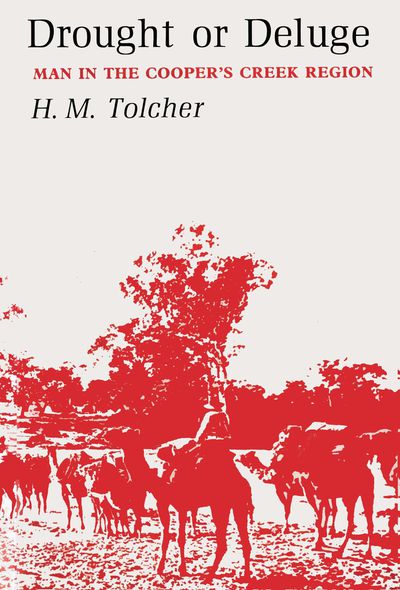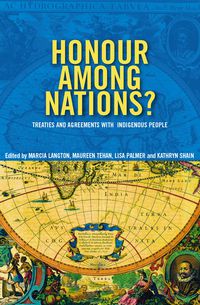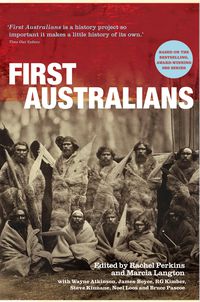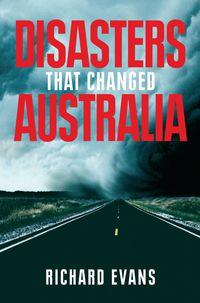Drought or Deluge
Man in the Cooper's Creek Region
Helen Tolcher
Ebook
Out of stock
$20.99
$20.99
$20.99
$20.99
$20.99
$20.99
$20.99
$20.99
$20.99
$20.99
$20.99
Member discount
As an MUP member you get 40% off the RRP of all print books.
Member discount
As an MUP member you get 40% off the RRP of all print books.
Member discount
As an MUP member you get 100% off the RRP of all print books.
Member discount
As an MUP member you get 25% off the RRP of all print books.
Member discount
As an MUP member you get 25% off the RRP of all print books.
Member discount
As an MUP member you get 25% off the RRP of all print books.
Member discount
As an MUP member you get 40% off the RRP of all print books.
Member discount
As an MUP member you get 10% off the RRP of all print books.
Member discount
As an MUP member you get 35% off the RRP of all print books.
Member discount
As an MUP member you get 40% off the RRP of all print books.
Drought or Deluge
Man in the Cooper's Creek Region
Helen Tolcher
To most of us, Cooper's Creek means Burke and Wills—and little more. There is a great deal more, as we urban dwellers who are exploring the Outback in increasing numbers rightly suspect. Much of it is inspiring, funny or tragic, and writ larger than our common experience.
What are and have been the patterns of human settlement in an area so remote, unyielding, volatile, yet fragile? Helen Tolcher tells the story well. She evokes the country as the Aborigines knew it before white settlement, and notes the irony of the current population of the whole area being 'less than that of one of the Aboriginal camps which Charles Sturt saw in 1845'. The tragic outcome of white man's encounters with the Aborigines, so that now only 'rock faces cryptically engraved' and museum specimens remain, is dealt with uncompromisingly.
The sharp but sympathetic eye is cast upon the often heroic struggles…
What are and have been the patterns of human settlement in an area so remote, unyielding, volatile, yet fragile? Helen Tolcher tells the story well. She evokes the country as the Aborigines knew it before white settlement, and notes the irony of the current population of the whole area being 'less than that of one of the Aboriginal camps which Charles Sturt saw in 1845'. The tragic outcome of white man's encounters with the Aborigines, so that now only 'rock faces cryptically engraved' and museum specimens remain, is dealt with uncompromisingly.
The sharp but sympathetic eye is cast upon the often heroic struggles…
To most of us, Cooper's Creek means Burke and Wills—and little more. There is a great deal more, as we urban dwellers who are exploring the Outback in increasing numbers rightly suspect. Much of it is inspiring, funny or tragic, and writ larger than our common experience.
What are and have been the patterns of human settlement in an area so remote, unyielding, volatile, yet fragile? Helen Tolcher tells the story well. She evokes the country as the Aborigines knew it before white settlement, and notes the irony of the current population of the whole area being 'less than that of one of the Aboriginal camps which Charles Sturt saw in 1845'. The tragic outcome of white man's encounters with the Aborigines, so that now only 'rock faces cryptically engraved' and museum specimens remain, is dealt with uncompromisingly.
The sharp but sympathetic eye is cast upon the often heroic struggles of the pastoralists in what remains a merciless environment. Rabbit plagues, when 'they came in like water through a funnel'; droughts, when camels on the mail run survived on compressed feed imported from India; floods, when boats were moored to the Innamincka police station verandah posts—it is all carefully documented.
And today's brisk, hard-hatted oil drillers, as much as the slow-spoken, enduring cattlemen, are still subject to the inevitable pendulum swing between drought and deluge.
What are and have been the patterns of human settlement in an area so remote, unyielding, volatile, yet fragile? Helen Tolcher tells the story well. She evokes the country as the Aborigines knew it before white settlement, and notes the irony of the current population of the whole area being 'less than that of one of the Aboriginal camps which Charles Sturt saw in 1845'. The tragic outcome of white man's encounters with the Aborigines, so that now only 'rock faces cryptically engraved' and museum specimens remain, is dealt with uncompromisingly.
The sharp but sympathetic eye is cast upon the often heroic struggles of the pastoralists in what remains a merciless environment. Rabbit plagues, when 'they came in like water through a funnel'; droughts, when camels on the mail run survived on compressed feed imported from India; floods, when boats were moored to the Innamincka police station verandah posts—it is all carefully documented.
And today's brisk, hard-hatted oil drillers, as much as the slow-spoken, enduring cattlemen, are still subject to the inevitable pendulum swing between drought and deluge.
Ebook
Out of stock
$20.99
$20.99
$20.99
$20.99
$20.99
$20.99
$20.99
$20.99
$20.99
$20.99
$20.99
Member discount
As an MUP member you get 40% off the RRP of all print books.
Member discount
As an MUP member you get 40% off the RRP of all print books.
Member discount
As an MUP member you get 100% off the RRP of all print books.
Member discount
As an MUP member you get 25% off the RRP of all print books.
Member discount
As an MUP member you get 25% off the RRP of all print books.
Member discount
As an MUP member you get 25% off the RRP of all print books.
Member discount
As an MUP member you get 40% off the RRP of all print books.
Member discount
As an MUP member you get 10% off the RRP of all print books.
Member discount
As an MUP member you get 35% off the RRP of all print books.
Member discount
As an MUP member you get 40% off the RRP of all print books.









